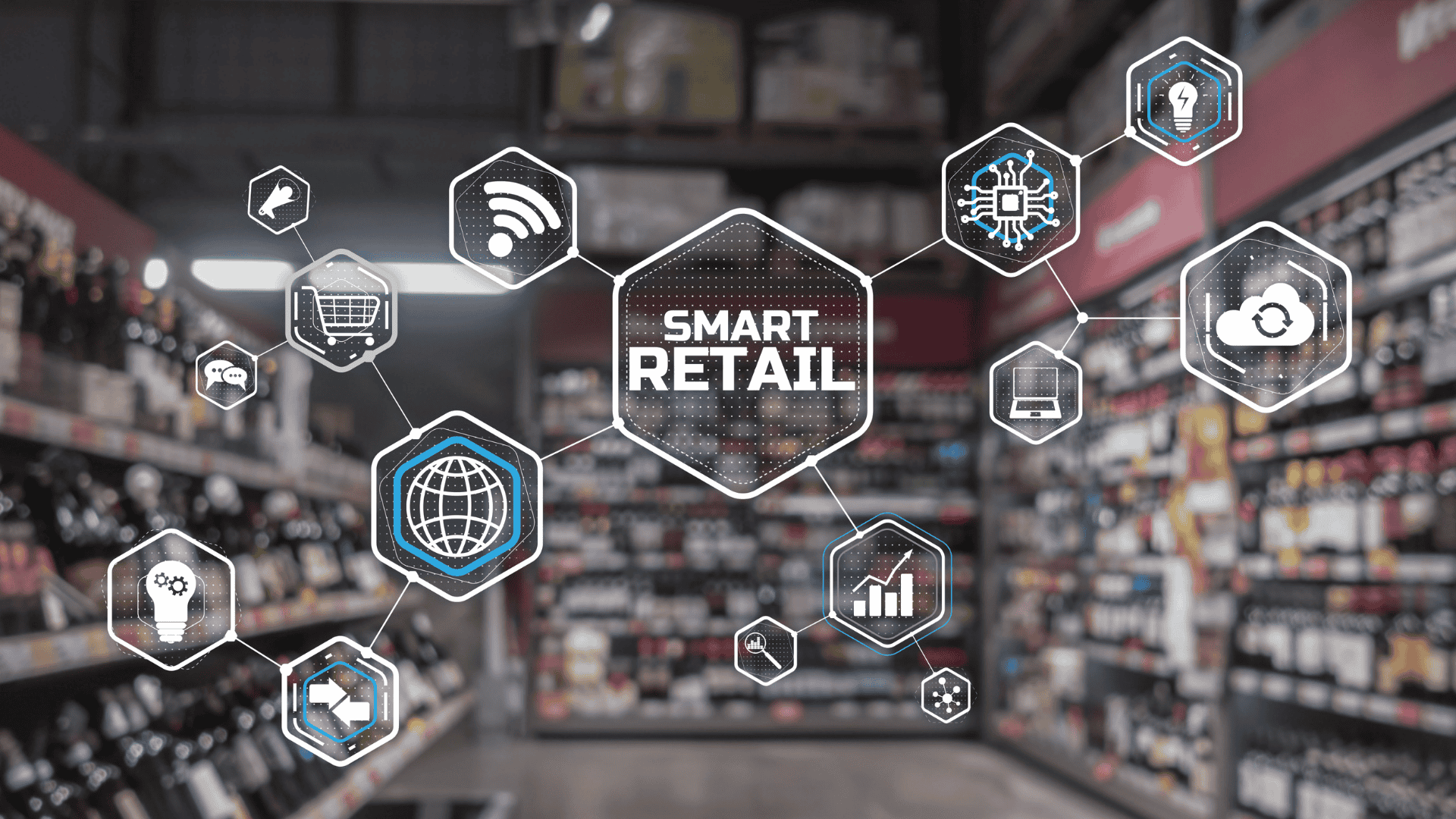In This article
Customer experience in the retail industry is a major competitive differentiator, perhaps the most important to your business. Modern consumers expect seamless, personalized, convenient, and secure interactions across every touchpoint and channel. Many retailers use artificial intelligence (AI) to meet and exceed these rising expectations.
The transformative power of AI technologies is rapidly reshaping every element of your interactions and relationships with your customers. From personalized marketing and smarter product recommendations to predictive analytics and customer service automation, AI is not just an option; it’s a transformative journey that can inspire and motivate your business to thrive in this rapidly evolving, increasingly customer-centric arena.
The Role of AI in Transforming Retail CX
AI is revolutionizing the customer experience in the retail industry in multiple ways. According to research conducted by customer experience software platform provider InMoment, leading retailers are embracing AI and leveraging it to provide hyper-relevant experiences that can significantly increase loyalty and lifetime customer value. Here are some examples.
- Personalized Customer Interactions: AI tools can leverage your customer data, including past purchases, browsing behavior, and demographic information, to help you deliver tailored recommendations and targeted communications.
- Predictive Analytics: AI can analyze large datasets quickly to help you forecast customer behavior and make proactive, data-driven decisions about customer engagement, inventory, and marketing.
- Omnichannel Integration: AI can seamlessly connect your online and offline channels to ensure consistent and cohesive customer experiences across mobile apps, websites, brick-and-mortar stores, and social media.
Key AI-Powered Solutions for Retail Customer Experience
AI Chatbots and Virtual Assistants
AI-powered chatbots and virtual assistants are transforming how brands provide customer support. They can respond instantly to customer inquiries and resolve common issues without human intervention. These tools can also assist with order tracking, personalized shopping advice, and returns. Retailers such as H&M and Sephora have successfully deployed AI chatbots that assist customers 24/7, enhance their experiences, and boost their satisfaction rates.
Recommendation Engines
AI-powered recommendation engines are helping retailers deliver personalized shopping experiences. AI analyzes browsing patterns, customer preferences, and purchase histories to suggest relevant products. The resulting “custom-tailored” recommendations increase conversion rates and average order values. Amazon’s AI-driven recommendation engine reportedly drives up to 35% of the company’s revenue.
AI in Supply Chain Management
AI can help you optimize your supply chains to ensure customers find what they want when they want it. AI-powered data analysis can help you accurately predict demand to prevent stockouts and overstocking. AI can also enhance your inventory management through real-time data analysis. For example, Walmart uses AI to manage inventory more effectively, reduce empty shelves, and improve the overall shopping experience.
Computer Vision and Smart Stores
AI-enabled computer vision technologies are transforming brick-and-mortar physical retail spaces. “Cashier-less” stores such as Amazon’s Amazon Go outlets use AI to detect when customers remove products from their shelves and automatically charge customers’ registered payment method as they exit the store. Shelf monitoring systems also detect stock levels, ensuring timely restocking and cleaner displays. Such innovations can improve customer experiences and operational efficiency for your retail business.
Benefits of Implementing AI in Retail CX
Deploying AI in the retail customer experience can enable numerous advantages for your customers and your business. According to AI-powered customer experience management platform provider Lumoa, retailers prioritizing AI-driven CX improvements significantly uplift customer satisfaction and loyalty. Here are examples of some of the benefits AI can bring to your business.
- Personalization: Enhanced recommendations and customized marketing messages lead to stronger emotional connections with customers, greater loyalty, larger baskets, and more repeat business.
- Efficiency: AI-powered chatbots and self-service systems can resolve issues faster, improving overall service quality without increasing staffing costs.
- Sales Growth: Targeted promotions and personalized shopping experiences boost sales and average transaction sizes.
- Customer Insights: AI-driven analytics can uncover deep insights into customer preferences and behaviors, which can help you improve your marketing and customer engagement efforts.
Challenges of Adopting AI in Retail CX
Achieving the promised benefits of AI in the retail customer experience is not without challenges. You must approach AI adoption strategically to mitigate these risks and maximize return on investment. Here are some of the obstacles you are most likely to face.
- High Initial Costs: Setting up AI systems, engaging experts, and integrating your existing infrastructure can require significant investment.
- Data Privacy and Security: Handling sensitive customer data demands robust cybersecurity measures and compliance with regulations such as the European Union’s General Data Protection Regulation (GDPR) and the California Consumer Privacy Act (CCPA).
- Integration with Legacy Systems: You may struggle to seamlessly integrate modern AI tools with outdated point-of-sale (POS) systems and databases.
Steps to Implement AI-Powered Solutions in Retail CX
There are several steps you can take to help minimize the challenges and maximize the benefits of your efforts to enhance your customers’ experience with AI. Here are some of the most important things you must do to succeed with AI.
- Identify Customer Pain Points: Map your current customer journey to discover friction points and set clear CX improvement goals.
- Select the Right AI Solutions: Choose AI tools tailored to your business needs, such as chatbots, recommendation engines, inventory optimization, or visual recognition systems.
- Partner with AI Experts: Collaborate with proven, trusted AI solution providers to validate your solution choices and ensure smooth deployment and scalability.
- Train Your Staff: Equip employees with the skills and motivation to leverage AI tools and AI-powered data analysis effectively.
- Monitor, Learn, Refine, and Revise: Track key performance indicators (KPIs) such as customer satisfaction scores, conversion rates, and chatbot resolution times, and use what you learn to evaluate the effectiveness of your AI deployments and identify opportunities to fine-tune your efforts.
Future Trends in AI for Retail CX
Multiple emerging AI trends will likely shape the future tools and solutions designed to address customer experience in the retail industry. Keeping abreast of these trends can help you establish and sustain a competitive advantage with AI. Here are some examples or trends worth watching.
- Hyper-Personalization: AI will create even more finely tailored experiences based on real-time and historical data analysis.
- Predictive Marketing: Machine learning models will anticipate customer needs before your customers express them explicitly.
- Visual Search, Augmented Reality (AR), and Virtual Reality (VR): Advances in these areas will enable customers to search for products and information using images and experience products virtually before purchasing, in-store, at home, and elsewhere.
- Advanced Conversational AI: AI chatbots will evolve into sophisticated virtual shopping assistants capable of deep, meaningful, more “human-like” conversations and complex problem-solving.
Conclusion
In a rapidly evolving, digital-first, omnichannel world, the importance of customer experience in the retail industry cannot be overstated. AI-powered solutions are your key to delivering the personalized, seamless, efficient, and secure experiences your customers now expect.
From AI chatbots and recommendation engines to innovative inventory systems and computer vision, AI is poised to transform how your retail business engages with and nurtures your customers. However, success with AI in your retail customer experience requires thoughtful planning, investment, and a customer-centric approach to solution selection, implementation, and staff training. By embracing these technologies and addressing their challenges now, you can elevate your customers’ experiences today and be better positioned to thrive competitively tomorrow. Visit the website to learn more about DTiQ’s safety and risk management solutions.
Frequently Asked Questions
1: How does AI improve customer experience in the retail industry?
AI enhances CX by personalizing interactions, providing instant support, predicting customer needs, and offering seamless omnichannel experiences.
2: What are examples of AI in retail customer experience?
Examples include AI chatbots for customer service, recommendation engines suggesting products, cashier-less stores like Amazon Go, and AI-powered inventory management.
3: What challenges should retailers anticipate when implementing AI?
Retailers should prepare for high initial costs, data privacy compliance concerns, and the technical challenges of integrating AI tools with legacy systems. Selecting the right solutions may also become increasingly challenging as options proliferate and evolve.
4: How can a retailer start implementing AI solutions?
Begin by identifying customer pain points, partnering with experienced AI vendors, training employees, and setting clear KPIs for performance monitoring.
5: What future AI trends should retailers watch?
Retailers should watch trends like hyper-personalization, predictive marketing, visual search, AR/VR experiences, and advanced conversational AI tools.


























